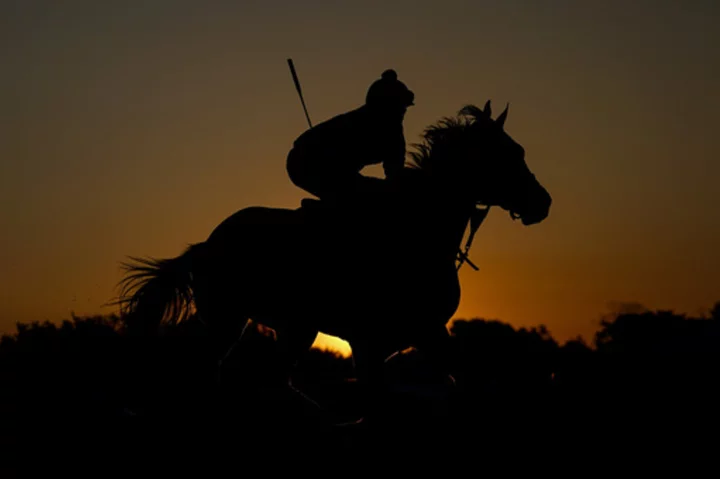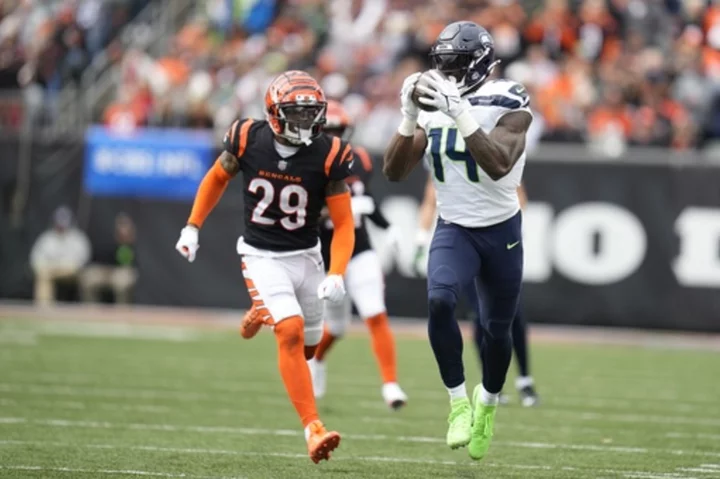When the crowd roared to a fever pitch at the 2015 Belmont Stakes to celebrate American Pharoah becoming the first Triple Crown winner in nearly four decades, the scene was a throwback to the days when it was common for the grandstand to be full and horse racing was squarely in the spotlight.
The moment was fleeting, as it was when Justify won the Triple Crown three years later. The joy of such a lofty accomplishment — the Triple Crown has been just 12 times since the first one in 1919 — was soon replaced by headlines mostly for the bad: Bob Baffert's 2021 Kentucky Derby winner, Medina Spirit, failing a postrace drug test and the Hall of Fame trainer being suspended. Disturbing clusters of horse deaths — at Santa Anita in 2019 and most recently 12 more at Churchill Downs, prompting the storied track to close to investigate.
Known in its heyday as the “Sport of Kings" when the likes of Seabiscuit, Man o’ War and Secretariat were stars featured first newspapers and radio reports and then newspapers, horse racing is long past its golden era, though the details can be complicated. Betting and sales numbers are setting records and viewership for days like the Derby trails only the Super Bowl in the U.S. But the buzz is limited and the total number of foals has fallen sharply over the past two decades, raising questions about where the niche sport goes from here in a crowded landscape.
"We need to educate outside of the industry in order to grow the industry," said Eric Hamelback, CEO of the National Horsemen’s Benevolent and Protective Association, which represents thoroughbred horsemen in the U.S. and Canada. “It won’t be what it once was. I don’t know that we can get back to the way it was. I think that we can continue to grow — at least on a steady, incremental basis.”
The biggest key to growth beyond horse racing's aging constituency is safety.
Industry leaders point out the sport has never been safer, with horse fatalities down 37.5% since they started being tracked in 2009 thanks to advancements in testing, track surfaces and other areas. The federally-mandated Horseracing Safety and Integrity Authority (HISA) took over last year, and its medication and anti-doping program went into effect last month.
The deaths at Churchill Downs put the sport at what HISA CEO Lisa Lazarus called a “crossroads,” given the amount of negative attention. One silver lining, she said, is that she started to hear more support for the new agency from those within the business hoping for “genuine change.”
“I’m feeling a real shift in support and recognition that we need to have unified rules, we need to have rigorous rules, we need to have clear standards," Lazarus said, “and that we may not have a future as an industry if we don’t.”
The industry as it exists right now is extremely profitable.
In 2022, 14,525 thoroughbreds in North America were sold for a cumulative value of over $1.2 billion, according to Bloodhorse, and over $12 billion was bet on races that were run for purses that added up to $1.31 billion. Zion Market Research recently estimated the industry produces $402 billion in revenue, with almost $794 billion possible by 2030.
Craig Bernick, an owner and breeder at Glen Hill Farm in Florida who is also part of the Thoroughbred Idea Foundation, cautioned that fewer bettors are actually involved than in decades past and that purse money is coming from casinos and other sources.
His said his biggest concern is that the sport has become more about breeding horses to sell them rather than run them, which has resulted in the best thoroughbreds having far shorter careers before going to stud.
“It has to be about the racing," Bernick said. "Racing of horses just needs to drive everything in the business. And I would say it doesn’t.”
As a result, Bernick thinks the quality of horse racing has suffered, with owners and breeders having their needs satisfied and fans not getting the best entertainment.
“How do we make this sport more appealing to the general public? And through that, everything else will grow because they’ll become consumers,” Bernick said. “They’ll become fans and become bettors. Pretty much every owner in history started as a fan or bettor. Yep. That’s really the way, ideally, the business would be driven.”
Those in the sport, from owners and trainers to jockeys, grooms and others around the barns accept the risk that's inherent in horses that weigh roughly a thousand pounds and run at high speeds. The fatality rate of 1.25 per every 1,000 starts makes deaths extraordinarily rare, but National Thoroughbred Racing Association president and CEO Tom Rooney and other industry leaders recognize they will always get attention and the goal is to get that number closer to zero.
Adjustments like more artificial surfaces, increased prerace testing and more stringent medication rules are aimed at doing that in the hope of growing horse racing — not back to how it was but more of a mainstream attraction beyond the Belmont every year when Triple Crown season is over.
“Risk is impossible to eliminate in any sport,” Rooney said. “That’s just a fact. But I’m convinced that our future is safer, fairer and will also be more popular for all of us.”
___
AP sports: https://apnews.com/hub/sports and https://twitter.com/AP_Sports









